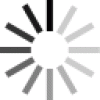
Mecho Shade Cloth
Performance Collections

SoHo Elavate
1180 and 1680 Series
Powered by PROTX2®, this shade cloth provides an additional layer of performance with patent-pending, medical-grade, metal-free technology.
Sustainability Collections

EcoGlass
2800 Series
EcoGlass combines luxury with sustainability, offering a lustrous finish that elevates any project.

EcoVeil
1750, 1550, and 1350 Series
A Cradle-to-Cradle CertifiedCM, basket weave shade cloth with three density options making it a sustainable solution for solar protection

EcoSheer
6850 and 6750 Series
Inherently flame-retardant shade cloth that is ideal for educational, residential, healthcare, and other health-focused spaces
Solar Collections

SoHo
1100, 1600, and 1900 Series
Basket weave shade cloth woven with fine polyester yarns, available in 14 distinct, designer-selected colors and three densities

EuroTwill
6200, 6000, and 6450 Series
Reversible shade cloth tightly woven with a fine, sheer polyester yarn and sealed in a PVC coating with a distinct twill design

ThermoVeil®
0900 and 1000 Series
This is a linear-woven shade cloth featuring a dense vertical weave that is flame retardant and fade resistant.

ThermoVeil®
1700, 1500, 1300, and 2100 Series
Tightly-woven, translucent material allows outside light to pass during the day and maintain privacy at night.

AcoustiVeil
0890 Series
High-performing material combines sound-absorption and near-blackout light-blocking into one tightly-woven, flame-retardant shade cloth
Blackout Collections

Classic Blackout
0700 Series
Flame-retardant and fade-resistant opaque vinyl shade cloth ideal for multimedia spaces, providing insulation and opacity at the window wall

Distinctive Blackout
0800 Series
Basket-weave pattern made of refined yet heavy-duty fiberglass yarn, creating an elegant face that resists fading and elongation

Chelsea Blackout
0250 Series
This PVC-free fabric combines a fine fabric with solid, graphite or white-colored backing to create a shade cloth that is opaque and attractive from interior and exterior viewpoints.

Equinox Blackout
0100 Series
PVC-free fiberglass shade cloth with an opaque white-acrylic backing ideal for multimedia spaces

Why Mecho Fabrics Outperform the Competition
- Through extensive research, Mecho established guidelines and recommendations for the use of our shadecloths, and now offer the broadest range of shadecloth color and density of any company worldwide
- Polyester core fabric shades retain their original shape and form, particularly if the shades are quite large
- Polyester core fabric allows for a sealed-cut edge, with a protective bead
How to Choose Between Shade Cloth Colors
View Shade Cloth Selector Infographic
- Color will directly affect heat gain (shading coefficient), brightness, and glare
- Light colors are more reflective with lower heat gain and shading coefficients, but with a higher percentage of daylight and solar transmittance
- Light colors are brighter when sunlit which causes high surface brightness and may transmit excessive, debilitating light onto computer screens and work stations
- Light colors are difficult to see through due to surface brightness and higher reflectance and transmittance characteristics
- Light colors tend to reflect more of the interior light back into the space
- Darker colors provide a better view through the shadecloth to the outside
- Dark colors absorb light and heat, and are less energy efficient than lighter colors
- Dark colors transmit less light and have a lower surface brightness, which lowers reflectivity and provides excellent glare-free environments
Find collections that meet your project specifications and filter selections based on product attributes, sustainability certification, and more
FIND YOUR FABRIC


